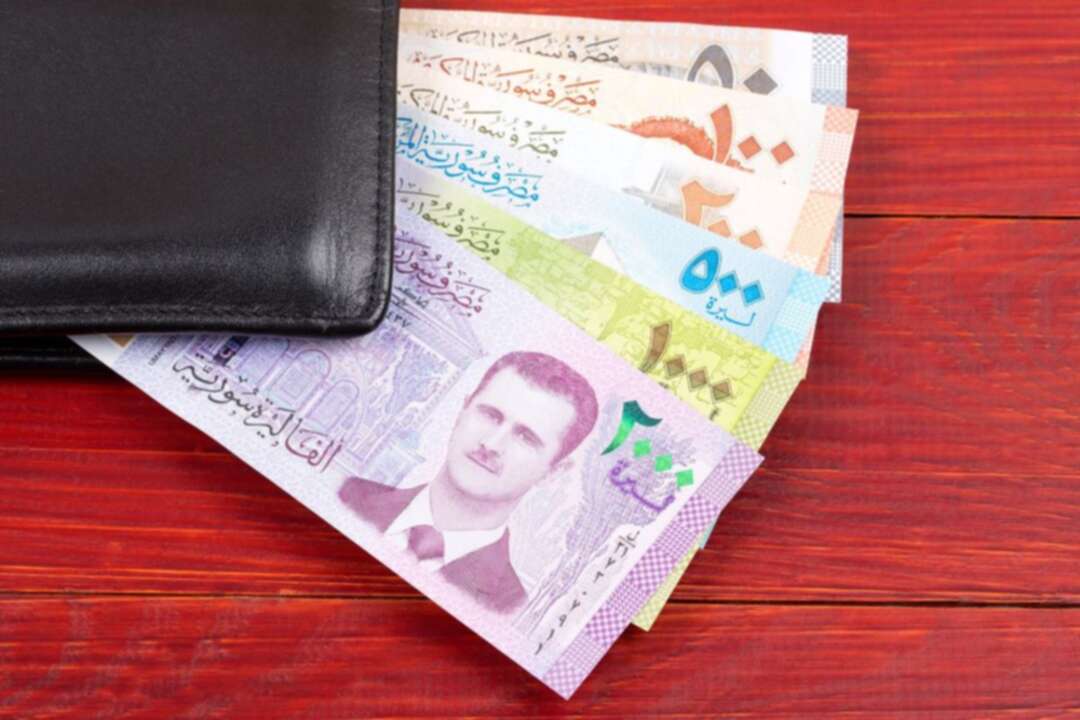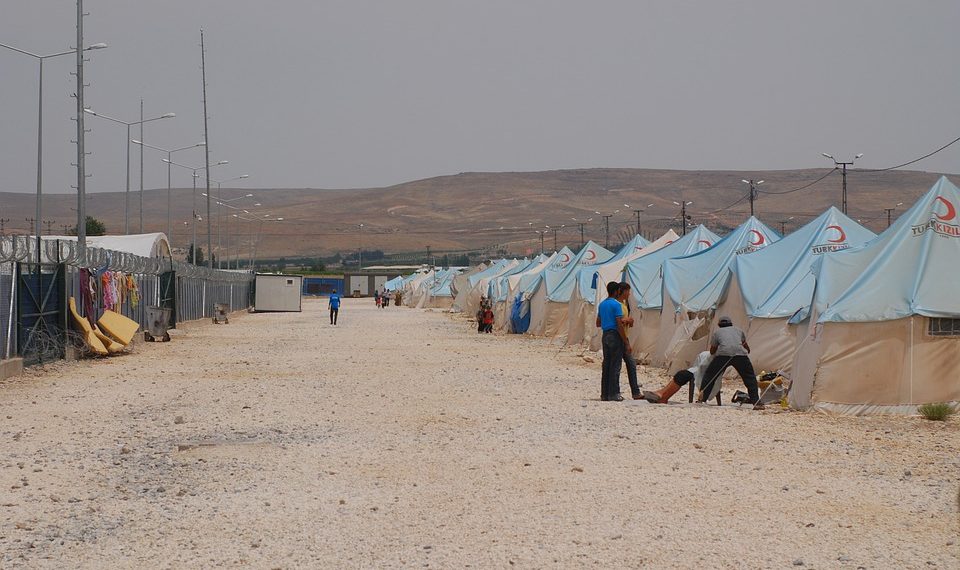-
Syrian regime siphons off millions of dollars of foreign aid by manipulating local currency

The Guardian reported according to new research, the Syrian government is siphoning off millions of dollars of foreign aid by forcing UN agencies to use a lower exchange rate.
Researchers from the Center for Strategic and International Studies (CSIS), the Operations & Policy Center thinktank and the Center for Operational Analysis and Research found, the Central Bank of Syria, which is sanctioned by the UK, US and EU, in effect made $60m (£44m) in 2020 by pocketing $0.51 of every aid dollar sent to Syria, making UN contracts one of the biggest money-making avenues for President Bashar al-Assad and his government.
According to the report, as Damascus hit by new US sanctions and the collapse of the banking system in neighbouring Lebanon, it is is relying increasingly on unorthodox methods for raising funds – money either pocketed by officials in Damascus for their own personal wealth, or put towards the 10-year-old war effort.
The Guardian said that researchers analysed hundreds of UN contracts to procure goods and services for people living in government-held areas of Syria, where more than 90% of the population are living in poverty since the Syrian pound, or lira, crashed last year.

It mentioned that while the central bank’s official exchange rate is now SYP2,500 to the US dollar, the black market rate is SYP3,500. Legitimate traders and consumers prefer to use the black market rate, as they receive more Syrian pounds for foreign currency.
Read more: HRW: Syrian refugees who returned home are risking abuse and persecution
Since the UN is forced by the Syrian government to use the official rate, half of foreign aid money exchanged into Syrian pounds in 2020 was lost after being exchanged at the lower, official rate.
“This shows an incredibly systematic way of diverting aid before it even has a chance to be implemented or used on the ground,” said Natasha Hall, of the CSIS, a Washington-based thinktank that helped compile the research.
“If the goal of sanctions overall is to deprive the regime of the resources to commit acts of violence against civilians and the goal of humanitarian aid is to reach people in need then we have this instance … where aid is at complete contradiction to those two stated goals.”
Following 10 years of civil war in Syria, international donor fatigue, already seen in decreasing aid pledges, has turned to more overt political re-engagement with Assad’s regime.
Without the US playing a strong role in finding a political solution in Syria, which Washington still publicly advocates, Arab nations – including the US-allied Jordan, the United Arab Emirates, Saudi Arabia and Egypt – have recently restarted diplomatic talks, reopened borders for trade and signalled renewing economic cooperation.
Read more: US Secretary of Defense pledges to continue working with Romania in Black Sea region
The Guardian said, the US allows Damascus to play a major role in funnelling Egyptian gas to Lebanon to power the country’s fuel-depleted power plants. Interpol allowed Syria to rejoin its network even as the fate of dissidents captured throughout the war remains unknown.
Examining 779 publicly available procurements for 2019 and 2020, listed on the UN Global Marketplace database, researchers found that up to $100m was lost in the exchange rate.
According to researchers, if salaries, cash-aid programmes and other funding streams not made public were included, the bank could be making hundreds of millions of dollars.
According to The Guardian, the funding has been channelled through various UN agencies – the Office for the Coordination of Humanitarian Affairs (OCHA); the World Food Programme; the UN Development Programme; the UNHCR; the Food and Agriculture Organisation; and Unicef.
The UN’s financial tracking system told the researchers it did not monitor the amount of money exchanged into Syrian pounds as “tracking such information was beyond the scope of their mission”.
Read more: A Democratic Trap for Hulusi Akar?
More than 350,000 people have died in Syria over the past decade, and governments have donated on average $2.5bn a year to the UN’s Syria programmes since 2014.
In 2016, the UN was accused of aiding the regime by diverting billions of dollars in aid to government-held regions while leaving besieged areas without food and medicine.
Human Rights Watch (HRW) has warned that UN agencies and governments risked complicity in human rights violations in Syria if they did not ensure transparency and effective oversight.
Advertisement
Last year, the US announced an additional $700m in humanitarian assistance for Syria. The UK government has given £1.59bn in aid to Syria between February 2012 and June 2021.
A Foreign, Commonwealth and Development Office spokesperson said: “The UK does not provide any aid through the Assad regime … Robust processes are in place to ensure that our aid reaches those who need it most.”
Hall said there was a “reticence” about investigating how much aid had been diverted. She said donors were well aware of the problem. “I think it is about
“There’s really no way for us, as independent consultants, to know the full extent of how aid is spent inside the country … We just wanted to flag that, even through this limited portal to understanding how much is spent, it’s already tens of millions of dollars which is hoarded.”
Read more: Britain receives over 48 billion pounds demand for second green gilt
She believes the UN should negotiate a preferential exchange rate with the Syrian government – – to at least reduce the amount siphoned off.
Sara Kayyali, of HRW, said “there was no due diligence in terms of human rights” within UN procurement to avoid bankrolling Syria.
She said: “This should be a wake-up call to the UN … they need to revise the way they provide aid and revise how they consider their obligations to respect human rights in light of this, because it’s difficult to justify this idea that hundreds of millions of dollars are going to an abusive state apparatus."
Danielle Moylan, a spokesperson for the UN agencies mentioned, said: “The UN welcomes all independent scrutiny of humanitarian operations in Syria. Our foremost priority has, and always will be, assisting the people in need in Syria, guided by humanitarian principles, accountability to the affected populations, transparency, efficiency and effectiveness.
Moylan said: “The majority of UN’s procurement for our humanitarian response in Syria is made in international and regional markets and therefore not affected by the Syrian exchange rate. Otherwise, as is the case in any country, the UN in Syria is required to use the official exchange rate."
“In the past, the UN and humanitarian partners have negotiated a ‘preferential’ exchange rate for humanitarian operations
Source: theguardian
You May Also Like
Popular Posts
Caricature
BENEFIT Sponsors BuildHer...
- April 23, 2025
BENEFIT, the Kingdom’s innovator and leading company in Fintech and electronic financial transactions service, has sponsored the BuildHer CityHack 2025 Hackathon, a two-day event spearheaded by the College of Engineering and Technology at the Royal University for Women (RUW).
Aimed at secondary school students, the event brought together a distinguished group of academic professionals and technology experts to mentor and inspire young participants.
More than 100 high school students from across the Kingdom of Bahrain took part in the hackathon, which featured an intensive programme of training workshops and hands-on sessions. These activities were tailored to enhance participants’ critical thinking, collaborative problem-solving, and team-building capabilities, while also encouraging the development of practical and sustainable solutions to contemporary challenges using modern technological tools.
BENEFIT’s Chief Executive Mr. Abdulwahed AlJanahi, commented: “Our support for this educational hackathon reflects our long-term strategic vision to nurture the talents of emerging national youth and empower the next generation of accomplished female leaders in technology. By fostering creativity and innovation, we aim to contribute meaningfully to Bahrain’s comprehensive development goals and align with the aspirations outlined in the Kingdom’s Vision 2030—an ambition in which BENEFIT plays a central role.”
Professor Riyadh Yousif Hamzah, President of the Royal University for Women, commented: “This initiative reflects our commitment to advancing women in STEM fields. We're cultivating a generation of creative, solution-driven female leaders who will drive national development. Our partnership with BENEFIT exemplifies the powerful synergy between academia and private sector in supporting educational innovation.”
Hanan Abdulla Hasan, Senior Manager, PR & Communication at BENEFIT, said: “We are honoured to collaborate with RUW in supporting this remarkable technology-focused event. It highlights our commitment to social responsibility, and our ongoing efforts to enhance the digital and innovation capabilities of young Bahraini women and foster their ability to harness technological tools in the service of a smarter, more sustainable future.”
For his part, Dr. Humam ElAgha, Acting Dean of the College of Engineering and Technology at the University, said: “BuildHer CityHack 2025 embodies our hands-on approach to education. By tackling real-world problems through creative thinking and sustainable solutions, we're preparing women to thrive in the knowledge economy – a cornerstone of the University's vision.”
opinion
Report
ads
Newsletter
Subscribe to our mailing list to get the new updates!






















